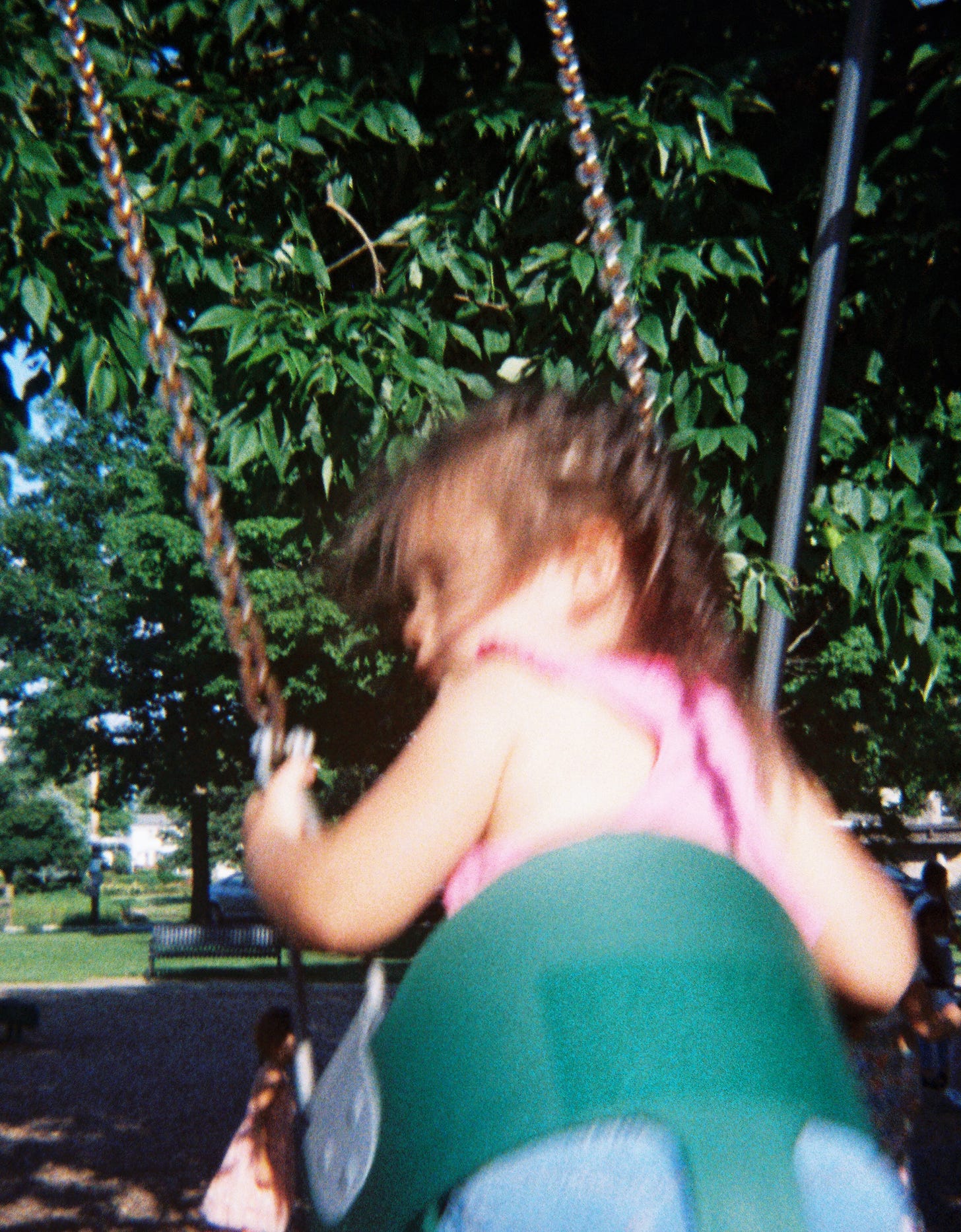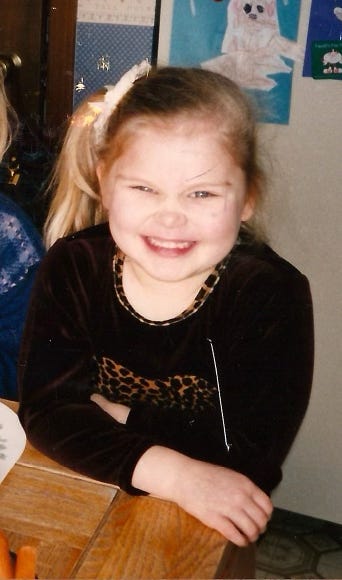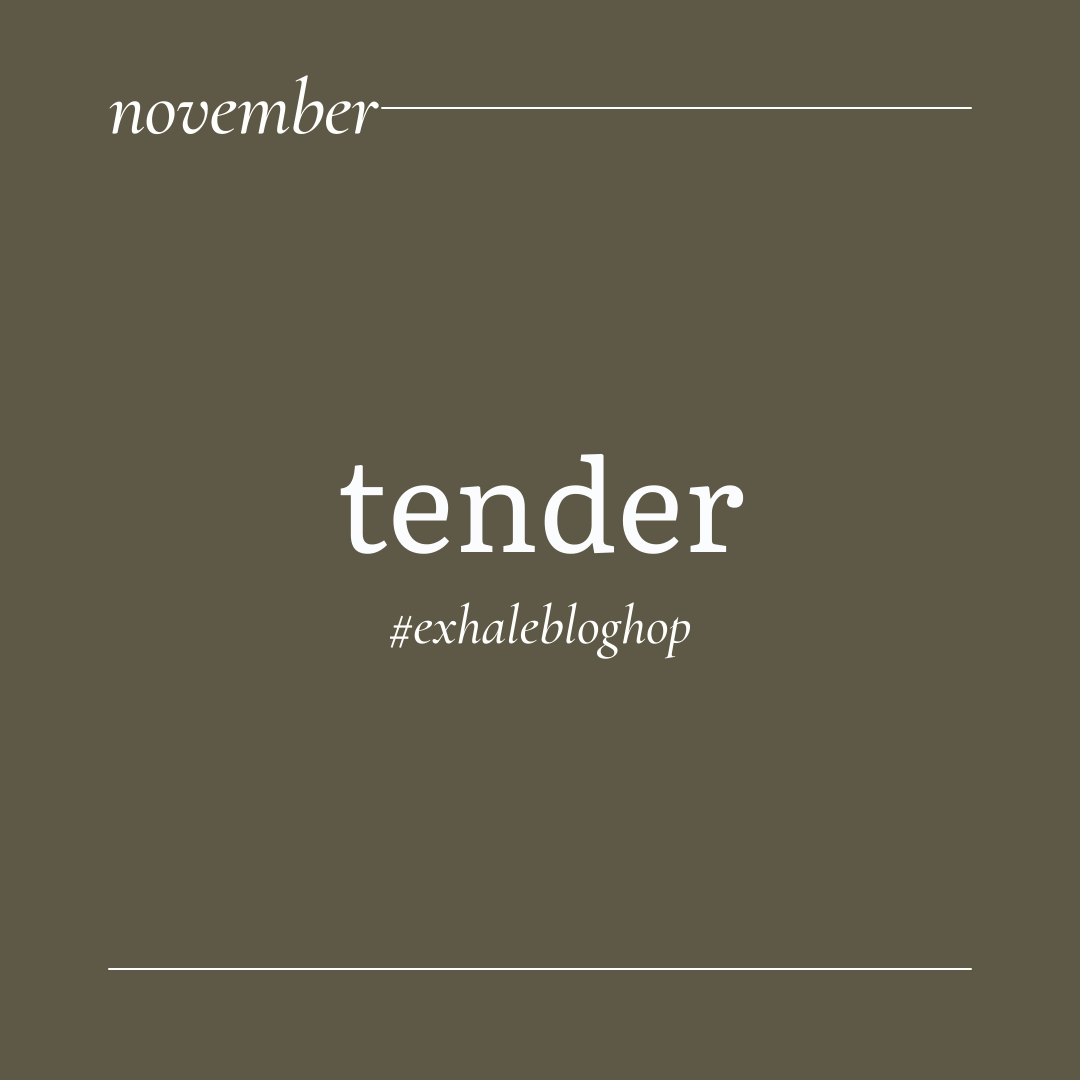My daughter is 5 going on 15. I swear the looks she gives me could melt something if she tried hard enough. In addition to her withering stare, she’s learned how to roll her eyes this year. That’s my favorite. The first time she decided to try out her new sass, something deep in me broke open. What was this attitude? What could I possibly have done to deserve it? I reviewed the scenario, tried to figure out what I had done wrong. For months afterward we’d have these episodes–a foreshadowing of her teenage years (please, no). It’s as if she found the tender spot I had been trying to keep manicured, tended to, reassured, and let’s face it–hidden. Somehow with one look, she exposed it to no one else but myself. “Why does she hate me?” I’d ask my husband through tears, wondering why my relationship with her didn’t come as easily as hers and his.
“Do you remember anything from your childhood?” My husband will ask me, a bit incredulously, because he remembers everything. Everything from detailed kindergarten memories, to what we had for dinner a month ago. To answer the question honestly, not a lot. I used to think it was because I had a pretty ordinary, uneventful life and didn’t have much to share. As a kid, most things made me laugh. I found joy in being outside, and preferred to sketch rather than watch TV. I had a few close friends that could draw the deepest belly laugh out of me. I was rather ordinary, but overall pretty happy.
When I became a wife and mother, the proximity and intimacy with this family that I’ve built started to reveal some pretty surprising things. Namely, how emotional I’ve become at a tiny pin prick of opposition.
“Are you sure you’re not mad at me?”
“Why does she hate me?”
“I can tell by the tone in your voice that you’re mad at me.”
“The kids like you more than me.”
They are a mirror to the things in myself that I don’t want to see. I see my insecurity and vulnerability.
In my childhood and adolescence, I was crafting an inner stronghold. A labyrinth of locked doors to bury any memories that I deemed unsafe. They could be downright terrifying, or just something awkward or uncomfortable that happened and made me feel like shrinking away. I realize now that the labyrinth was a coping mechanism for the most tender, vulnerable place in my life: my feelings, opinions, my thoughts and dreams–my very essence of self. I learned how to master the art of hiding. I placed a mirror in front of myself so I could be like other people, make them feel comfortable, and forget my own worries or anxiety. It felt easier to please than to be real and honest. I think that eventually led to burying many memories, both good and bad.
Now, the mirror is placed back on me through my daughter. I see myself, and all of the sudden, I’m taken back to my childhood. I don’t know how to cope or process the big feelings of a child. I don’t know how to process my more complicated adult emotions. But the locked doors don’t seem to stay shut anymore.
One thing I do know is, I want my daughter to have the tools and awareness that I didn’t have. Most importantly, I want her to feel safe and know that tenderness and vulnerability are not weaknesses. Understanding yourself, and letting others see who you really are is a strength–insecurities and all.
I’m learning a hard lesson: with kids, you can’t cover the tender spots. I’ve tried and it seeps out through anger and self defense, people-pleasing, and has eventually has led to therapy. Kids are brutally honest and untethered. My kids don’t mean what they say nearly 75% of the time they’re angry or lashing out, but they want to know if I can handle it–if I can handle them. If they are still loved.
I don’t know that I had the space to lash out, to express myself, to feel. Now, thirty years later, I’m still trying to learn how to feel my emotions instead of numb out, and express my opinions instead of locking them away.
In my daughter’s most vulnerable moments, she needs to see my tenderness and vulnerability. She needs to experience a different response, a different way to cope, than I taught myself as a kid. She needs to see that it’s ok to cry, to feel, to express. I’ve often wondered how I can teach her something that I fundamentally did not learn as a kid, and still have trouble with as an adult.
I think the simple answer is, we’ll learn together.
This post is part of a blog hop with Exhale—an online community of women pursuing creativity alongside motherhood, led by the writing team behind Coffee + Crumbs. Click here to view the next post in the series "Tender."







This is so beautifully written, and I totally relate. I feel like I’m always balancing “no, we treat each other with kindness in our home” and “It’s important to express our feelings and not bottle them up.” 🙃 Hoping therapy helps me find the middle ground so I can help my kids have the tools they need to be kind, mentally healthy adults. ❤️
Kids are such mirrors- in the best and also hardest of ways. I love your last line "we'll learn together." I've actually been reflecting on this idea as I've been writing about my daughter getting bangs and expressing opinions about her looks more and my hoping she learns to always believe she's beautiful and worthy. And I'm learning those things right alongside her as well. (This essay has yet to make it to a blog post... but maybe one day soon!) This was beautifully written! Thanks for sharing!